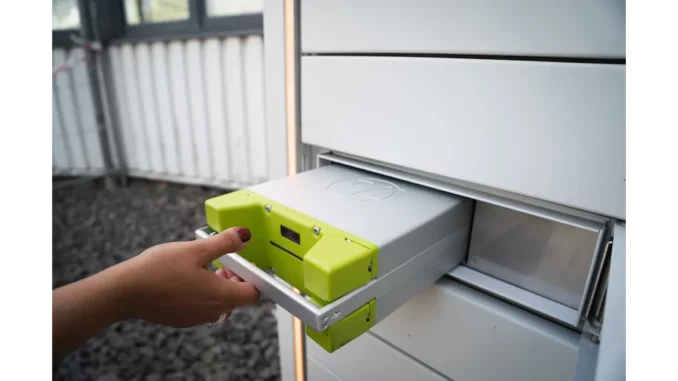
In a landmark development poised to reshape the British automotive industry, Tata Group, the parent company of Jaguar Land Rover, has selected the United Kingdom over Spain for its new multi-billion-pound car battery manufacturing plant. This decision, anticipated to generate up to 9,000 jobs, represents a substantial boost to the UK’s economy and its burgeoning electric vehicle (EV) manufacturing capabilities.
Discover how Focus360 Energy aids sustainable development with Sustainability Statements.
To gain a deeper understanding of this transformative decision, I had the opportunity to interview Brian Mitchell, a senior project manager at Gravity business park, the designated site for the gigafactory. Our discussion offered valuable insights into the local and national implications of this monumental project.
Upon entering the Gravity business park office, Brian Mitchell’s enthusiasm was immediately apparent. He recounted the arduous journey leading to this pivotal achievement. “This has been a long time coming,” Brian remarked, his eyes gleaming with a mixture of excitement and relief. “Our team has worked tirelessly to position Gravity business park as an attractive proposition for industry giants, and Jaguar Land Rover’s decision is a testament to our efforts.”
The envisioned gigafactory, potentially the UK’s largest single building, will be strategically located near the M5 motorway at Puriton. Brian elaborated on the significance of this site selection. “Proximity to major transport links and access to a skilled workforce were crucial factors for Tata Group,” he explained. “The 635-acre smart campus we are developing at Gravity is tailored to support large-scale, high-tech manufacturing operations.”
A compelling aspect of this project is its potential to create up to 9,000 jobs, which could revitalise local communities and provide a plethora of opportunities for professionals across various sectors. Brian emphasised the breadth of roles required for the gigafactory. “From engineers and technicians to administrative staff and supply chain managers, a diverse array of skills will be needed,” he noted. “We are already in discussions with local educational institutions to develop training programmes that will equip individuals with the necessary expertise.”
Brian’s commitment to community development was clear as he detailed the broader economic impact. “Beyond direct employment, there will be numerous indirect opportunities,” he said. “Local businesses, ranging from restaurants to housing developers, will benefit from the heightened economic activity. It’s a mutually beneficial situation.”
The UK government has actively supported this endeavour, offering incentives worth £500 million to facilitate Jaguar Land Rover’s establishment of the gigafactory. Brian commended the government’s dedication to enhancing the UK’s EV manufacturing capacity. “Chancellor Jeremy Hunt has underscored the importance of the UK leading in battery manufacturing,” Brian stated. “The British Energy Supercharger scheme, aimed at reducing energy costs for energy-intensive companies, is another commendable initiative.”
Brian also addressed the broader implications for the UK’s automotive industry, particularly in the post-Brexit context. “This decision is a significant vote of confidence in the UK’s global competitiveness,” he affirmed. “It comes at a time when other automakers have expressed concerns about post-Brexit trade rules. By securing this deal, the UK demonstrates its viability and attractiveness as a destination for high-tech manufacturing.”
As our conversation drew to a close, Brian reflected on the long-term vision for Gravity business park and the gigafactory. “This is just the beginning,” he said, with a note of optimism. “We envisage Gravity becoming a hub for innovation and sustainable manufacturing. The gigafactory is a cornerstone of that vision, but we are also exploring opportunities in sectors such as renewable energy and advanced manufacturing.”
Brian’s unwavering belief in the project’s potential was both inspiring and infectious. His dedication to creating a thriving, sustainable community at Gravity was evident, and it became clear that Jaguar Land Rover’s gigafactory is not merely a business venture—it is a symbol of hope and progress for the region.
Jaguar Land Rover’s decision to establish its gigafactory in the UK signifies a major milestone for the British automotive industry. With the potential to create thousands of jobs and stimulate local economies, this project stands as a beacon of progress and opportunity.
As Brian Mitchell and the team at Gravity business park continue their efforts, the future of the UK’s electric vehicle manufacturing landscape looks promising. This gigafactory is not only a testament to the nation’s industrial capabilities but also a commitment to a more sustainable and prosperous future for the region and its people.


Be the first to comment